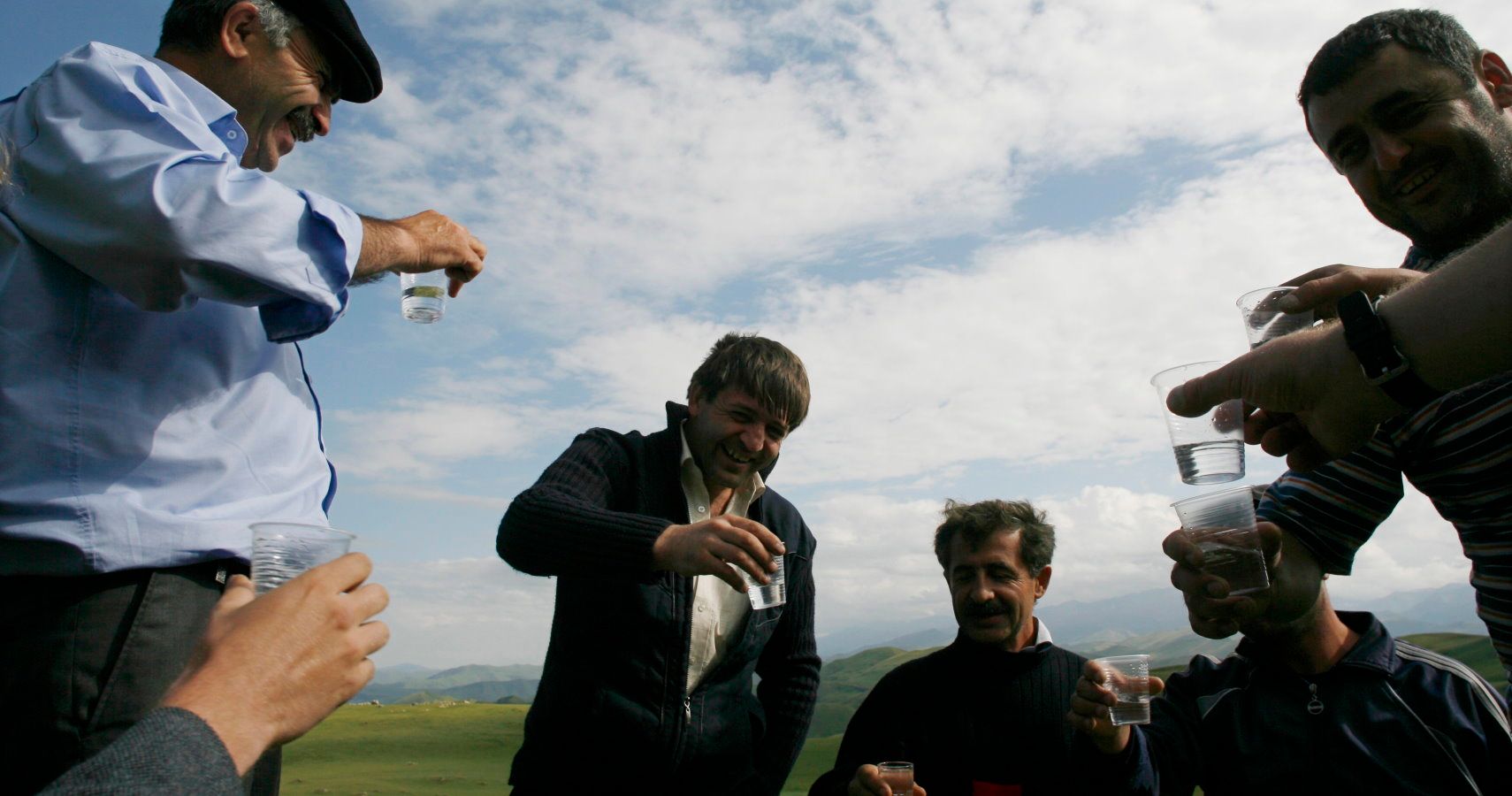Russia is no longer the booze-swilling country it once was, according to a new report.
Ever notice all those Russian car crash compilations on YouTube? They’re all pretty much the same: an obviously inebriated driver is spotted doing something incredibly dangerous and results in their sudden cessation of movement, often with violent consequences. You don’t see as many of them these days which was previously thought to be because YouTube was cracking down on them, but there might be more to it.
Russians just might not be drinking that much anymore.
A new report from the World Health Organization looked at Russian alcohol policy since the early 2000s. Back in the day, alcohol was the leading cause of premature death in working males, but since 2003, alcohol consumption in Russia has dropped 43%. This has caused a commensurate increase in average life expectancy in Russia, climbing to almost 68 in men and 78 in women in 2018.
This seems to indicate that men still have some ways to go since they're still dying a decade younger than women, but it's still a huge improvement.
So why are Russians drinking less? Turns out it's not because they had a sudden realization that they were drinking themselves to death. It's actually because of government regulations and restrictions on alcohol sales.
RELATED: New Cannabis Cafe To Open In Los Angeles Is Country's First
In the early 2000s, Russia took over the alcohol industry. They created a state-owned distillery and banned anyone from making booze without a license. Then in 2011, they increased taxes on booze and raised the minimum price for a bottle of vodka or other spirits. Finally, they banned the sale of booze from vending machines and convenience stores with super late hours--sort of a national "last call" law.
Russians were annoyed, but the policies worked. They’re drinking less and living longer because of it.
"The experience gathered by the Russian Federation in reducing the burden of disease stemming from alcohol represents a powerful argument that effective alcohol policy is essential to improving the prospects of living long and healthy lives,” the report reads. WHO is now encouraging other European nations with an alcohol problem to follow Russia’s lead and implement similar solutions.
(via The Takeout)
NEXT: TripAdvisor Will No Longer Sell Tickets For Attractions Breeding Captive Marine Animals


